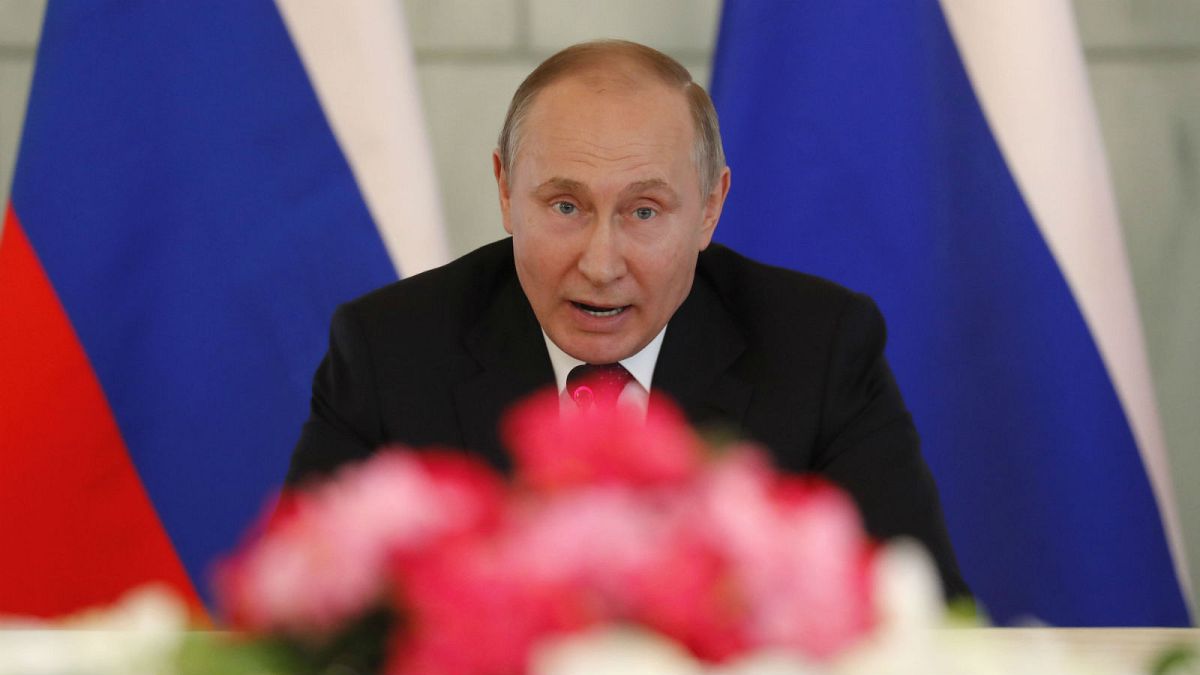Justice campaigners Fair Trials claim Russian authorities have used Interpol to target an associate of Alexei Navalny over the alleged theft of a €2 poster.
Russia has used the world’s largest police network to target figures close to political rivals of Vladimir Putin, it’s been claimed.
It has utilised Interpol to disrupt an associate of prominent opposition leader Alexei Navalny, according to justice campaigners Fair Trials.
The NGO says Russian authorities went after Nikita Kulachenkov, who worked at the Moscow-based Anti-Corruption Foundation of Navalny, who has been barred from running in Sunday’s presidential election.
Kulachenkov says they accused him of ‘stealing’ a poster that was stuck to a wall in a small town outside the capital.
The street art, which Kulachenkov gave to colleague Navalny as a gift, was initially valued at €2 by its creator.
Fair Trials say the poster was one of many on the street and that it would usually have been left to ruin in the rain.
But a criminal case was launched and, fearing he would not get a fair trial, Kulachenkov fled to claim asylum in Lithuania.
He was granted refugee status but when he travelled to see family in Cyprus he was arrested and had to spend three weeks in a Nicosia prison.
Kulachenkov says he was detained because Russian authorities continued the criminal case in his absence and put him on an Interpol wanted list.
He claims their action was politically motivated.
Interpol, a network of police forces from 190 countries, uses ‘diffusion notices’ to alert authorities around the world to people that are wanted for crimes elsewhere.
Fair Trials says while Interpol is an important crime-fighting tool it is being misused by authoritarian regimes to target activists, journalists and refugees.
Kulachenkov, later released by Cypriot authorities, says despite alerting Interpol to his case he could still be detained the next time he travels across borders.
“I can’t say my life is spoiled or they ruined my life but some part of my life is no longer available,” said Kulachenkov.
“Like working for a multinational company, I wouldn’t be able to do that. And Interpol have voluntarily helped Russia to do that.”
A spokeswoman for Interpol told Euronews: “Our rules mean we cannot speak about individual cases.
“We established a dedicated task force comprising lawyers, police officers, analysts and operational specialists to review all red notices and wanted persons diffusions.
“The task force conducts a compliance review for every wanted person diffusion issued by all member countries.
“If a red notice or diffusion is cancelled, for whatever reason, a message is sent to all member countries informing them of the decision and they are requested to remove any related information from their national databases.
“Interpol cannot insist or compel any member country to arrest an individual who is the subject of a Red Notice or wanted person diffusion.
“Nor can Interpol require any member country to take any action in response to another member country’s request.
“When taking a decision to act on a notice or any other request, a country assumes full responsibility for that decision.”
